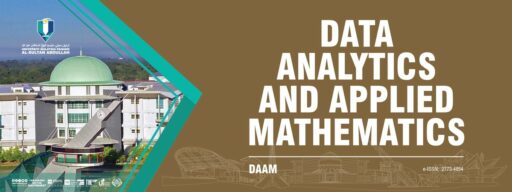Table of Contents
In an era where data is pivotal to business and technology, the IBM Data Science Professional Certificate stands out as a comprehensive educational pathway. This review delves into the certificate’s curriculum, learner experiences, cost, career outcomes, and its standing in the competitive landscape of data analytics certifications.
Key Takeaways
- The IBM Data Science Professional Certificate offers a broad curriculum including Python, SQL, machine learning, and BI technologies, designed for beginners with a career focus in data science.
- Learners have access to real-world industry projects and can benefit from feedback and testimonials from professionals and students who have taken the course.
- The certificate program is accessible with a free 7-day trial followed by a $49 monthly subscription, making it a cost-effective choice for many.
- Earning the IBM certification can significantly impact one’s job market presence, with the Master’s certificate highlighting a high level of expertise.
- Compared to other data analytics certifications, IBM’s offering is distinguished by its industry relevance, rigorous curriculum, and positive career impact as reported by successful learners.
Comprehensive Curriculum: Navigating the IBM Data Science Professional Certificate


Course Structure and Content Overview
The IBM Data Science Professional Certificate program is structured to provide a comprehensive learning path for those aspiring to become proficient in data science. The curriculum is divided into multiple sections, each focusing on a specific area of data science, starting with an introduction to the field and progressing through more advanced topics.
- Section 1 – Introduction covers the basics of business analytics with Python, setting the stage for what’s to come.
- Part A: A/B Testing and Experimentation delves into the importance of testing in data-driven decision-making.
- The course concludes with a segment on ‘Where to Go From Here?’, guiding learners on their next steps post-certification.
The program features a blend of videos, readings, practice quizzes, and programming assignments to ensure a well-rounded educational experience. It emphasizes the practical application of skills through hands-on sessions and assignments, particularly in modules like Linux and Data Wrangling with SQL.
The flexibility of the program, with its 100% online courses and self-paced learning options, makes it accessible to a wide range of learners, from professionals looking to upskill to students starting their careers in data science.
Python for Data Analysis and SQL Datasets
The IBM Data Science Professional Certificate equips learners with the essential skills for data analysis using Python and SQL. Python’s versatility and SQL’s powerful data querying capabilities form the backbone of data manipulation and analysis in this course. Participants gain hands-on experience with Python libraries such as pandas, and learn to integrate SQL queries within Python code to handle complex data analysis tasks.
Learners are introduced to a variety of SQL optimization techniques, including:
- Record grouping, searching, and sorting
- Utilization of clustered indexes and common table expressions
The course’s practical approach, with exercises such as writing complex subqueries and functions, prepares students to tackle real-world data challenges and to extract meaningful insights.
Feedback from course participants highlights the comprehensive nature of the syllabus, which covers both Python and SQL in depth. The assignments are designed to reinforce understanding and provide a rewarding learning experience. For those new to SQL or Python’s pandas library, the course serves as a solid foundation, bridging the gap between theoretical knowledge and practical application.
Machine Learning Fundamentals
The IBM Data Science Professional Certificate delves into the essentials of machine learning, providing a solid foundation for those aiming to excel in data science. The curriculum covers a range of topics, from supervised and unsupervised learning to the practical application of tools like scikit-learn and Keras.
Learners are introduced to key concepts such as regression and classification, crucial for understanding how to train, evaluate, and optimize models. The course emphasizes hands-on experience, ensuring that participants are well-versed in machine learning software and techniques, which are indispensable in today’s AI-driven industry.
The course’s approach to machine learning equips learners with the skills to apply algorithms in various domains, including smart robotics and medical informatics, enhancing their ability to contribute to their organization’s AI initiatives.
The table below summarizes the core machine learning topics covered in the certificate program:
| Topic | Description |
|---|---|
| Supervised Learning | Introduction to algorithms and model training |
| Unsupervised Learning | Exploring data patterns without labeled outcomes |
| Regression | Techniques for continuous data prediction |
| Classification | Methods for categorical data analysis |
By mastering these fundamentals, participants are prepared to tackle real-world data challenges and advance their careers in the burgeoning field of data science.
Business Intelligence Technologies and Decision-Making
The IBM Data Science Professional Certificate delves into the transformative power of Business Intelligence (BI) technologies, which are pivotal in shaping modern decision-making processes. BI tools equip professionals with the ability to analyze data effectively and make strategic decisions that can propel a business forward.
The curriculum emphasizes the importance of BI in achieving increased operational efficiency and strategic business growth. By automating data collection and analysis, organizations can respond swiftly to market changes, ensuring they remain competitive.
The mastery of BI technologies is not just about understanding data; it’s about translating insights into actionable strategies that drive success.
Learners are introduced to a variety of BI tools, including Tableau and Power BI, which are essential for visualizing and interpreting complex datasets. The course also covers the use of Python and SQL for managing and querying data, further enhancing the decision-making toolkit available to professionals.
Here are some key benefits of integrating BI technologies into business practices:
- Enhanced decision-making based on real-time information
- Streamlined data processes for increased efficiency
- Strategic insights for identifying growth opportunities
- Informed understanding of business strengths and weaknesses
The Learner’s Experience: Insights and Testimonials


Real-World Applications and Industry Projects
The IBM Data Science Professional Certificate equips learners with hands-on experience with real-world data analytics problems, ensuring they are well-prepared for advanced roles within the industry. Participants engage with a variety of industry tools and technologies through practical assignments and projects, including but not limited to:
- Qlikview
- Cassandra
- MicroStrategy
- Tableau
- Cognos
- MongoDB
- Talend
- Data Warehousing
- NiFi
- ZooKeeper
- DevOps
- OBIEE
- Pentaho
- HBase
These tools are integral to mastering the practical aspects of data science and business intelligence. The program’s structure emphasizes the application of theoretical knowledge in real-world scenarios, bridging the gap between academic learning and industry demands.
The culmination of all the above concepts with real-world problem statements for better understanding ensures that learners can confidently apply their knowledge in a professional setting.
Learners also gain proficiency in SQL through hands-on labs and projects, tackling complex database operations like Stored Procedures, Views, ACID Transactions, and various types of JOINs. The final project serves as a capstone, allowing participants to analyze multiple real-world datasets and showcase their comprehensive data science skills.
Feedback from Professionals and Students
The IBM Data Science Professional Certificate has garnered feedback from a diverse group of individuals, ranging from industry professionals to students embarking on their data science journey. The consensus highlights the practicality and relevance of the curriculum, which is designed to align with current industry standards and practices.
Participants have praised the program for its comprehensive coverage of essential topics, such as data analytics, databases, and business intelligence. The course’s focus on both R and Python programming languages ensures that learners are well-equipped to tackle real-world data challenges. Moreover, the inclusion of topics like discrete probability distribution and the use of random forest algorithm in Python resonates with those seeking to deepen their technical expertise.
The mentorship component of the program is particularly appreciated, as it provides personalized guidance and career advice, enhancing the learning experience.
Alumni of the program have reported positive employment outcomes, with many securing roles in the technology industry. The course’s emphasis on practical applications, as evidenced by projects and exercises, has been instrumental in preparing students for the job market. Additionally, the career services offered, such as resume and LinkedIn profile building, as well as mock interview preparation, have been valuable in helping learners present themselves effectively to potential employers.
Support and Resources for Learners
The IBM Data Science Professional Certificate program offers a wealth of support and resources to enhance the learning experience. Participants have access to a variety of tools designed to facilitate their educational journey.
Learners can tap into a community that includes fellow students, industry professionals, and subject matter experts. This network provides invaluable opportunities for collaboration, networking, and peer support. Additionally, the program includes:
- A comprehensive blog with articles on relevant topics such as deep learning and data management.
- A dedicated Tech Blog for insights into the latest web development tools and technologies.
- The Coursera Teaching Center, which offers guidance on how to make the most of the learning platform.
The program’s commitment to accessibility ensures that resources are available to learners regardless of their location or background, fostering an inclusive environment for all.
Free resources such as courses and articles are also available, allowing learners to expand their knowledge base without additional financial investment.
Cost and Accessibility: Evaluating the Investment


Understanding the Fee Structure
The IBM Data Science Professional Certificate program offers a transparent and straightforward fee structure, ensuring that learners can budget effectively for their education. The cost of the program is designed to be competitive, providing access to a comprehensive suite of courses without hidden charges.
- Individual Course Fee: Each course within the certificate program has a separate fee, allowing learners to pay as they go.
- Full Program Fee: There is an option to pay for the entire certificate program upfront, which may offer a cost-saving compared to individual course fees.
The program’s pricing model is built to accommodate the financial and educational needs of a diverse range of learners, from students to working professionals.
It’s important for prospective students to consider the total investment required, not just in terms of money, but also the time and effort needed to complete the program. The value derived from the certificate can be substantial, leading to new career opportunities and advancements in the field of data science.
Free Trial and Monthly Subscription Options
The IBM Data Science Professional Certificate program offers flexible payment options to accommodate different learning paces and budgets. Prospective students can start with a free trial, which provides a glimpse into the course material and structure, allowing them to make an informed decision before committing financially.
For those ready to dive in, the program offers a monthly subscription model. This pay-as-you-go approach is ideal for learners who prefer a short-term commitment or those who wish to spread out the cost over time. Below is a summary of the subscription options:
- Monthly Subscription: $39/month
- Annual Subscription: $279/year (equivalent to $23/month, saving 40% compared to the monthly rate)
The choice between monthly and annual plans depends on the individual’s learning goals, schedule, and budget. The annual plan is particularly cost-effective for committed learners focused on career transition or advancement.
It’s important to note that both options include access to the same comprehensive curriculum, resources, and support from the IBM and Coursera community. The decision ultimately hinges on personal preference and financial flexibility.
Return on Investment for Career Development
When considering the IBM Data Science Professional Certificate, potential learners are keenly interested in the return on investment (ROI) for their career development. The certificate’s cost must be weighed against the tangible benefits it can bring to one’s career trajectory.
The certificate can be a catalyst for career advancement, potentially leading to higher earning potential and more advanced job roles.
Here are some factors to consider when evaluating ROI:
- Program Costs: Assess the total expense, including tuition and any additional resources.
- Financial Aid Options: Explore scholarships, grants, or payment plans that can ease the financial burden.
- Career Support and Resources: Utilize available services like resume reviews, interview prep, and job placement assistance.
- Networking Opportunities: Leverage alumni networks and industry connections.
Finally, it’s crucial to review alumni feedback and employment outcomes to understand the certificate’s effectiveness in fostering career growth.
Certification Outcomes: Career Advancement and Recognition


The Value of IBM Certification in the Job Market
In the rapidly evolving domain of data science, the IBM Data Science Professional Certificate stands as a beacon of proficiency for employers. Certification serves as a formal validation of your data analytics skills, offering a clear signal to potential employers of your capabilities in statistical analysis, data visualization, and programming.
Certified professionals often enjoy a competitive salary advantage, as employers recognize the value of certified expertise and are willing to compensate accordingly. This is not just about higher earning potential; it’s about the recognition of the effort and time invested in professional development.
The benefits of IBM certification extend beyond individual advancement. They include access to specialized roles and a community of certified professionals, fostering networking opportunities that can lead to broader career opportunities. Here’s a snapshot of the advantages:
- Commitment to Professional Development
- Competitive Salary Advantage
- Networking Opportunities
- Validation of Skills
- Enhanced Employability
- Industry Recognition
- Access to Specialized Roles
The IBM Data Science Professional Certificate can be a distinguishing factor in a competitive job market, where data science expertise is in high demand. Skills in math, programming, and machine learning are essential for a successful career.
Master’s Certificate: A Mark of Expertise
The IBM Data Science Professional Certificate culminates in the awarding of a Master’s Certificate, a testament to the comprehensive skill set and expertise that participants have developed. This certification is not just a piece of paper; it is a marker of proficiency recognized across the industry, often leading to significant career advancements.
- Competitive Salary Advantage: Certified professionals often enjoy a higher salary bracket, as employers value the certified expertise.
- Validation of Skills: It serves as a formal recognition of one’s abilities, making certified individuals stand out in the job market.
- Networking Opportunities: The program provides access to a community of professionals, fostering valuable connections.
The Master’s Certificate from IBM is designed to align with the demands of the data science industry, ensuring that the skills acquired are both current and relevant.
Job Growth and Opportunities in Data Science
The landscape of data science careers is rapidly expanding, with a surge in demand for skilled professionals who can interpret and leverage big data. According to the US Bureau of Labor Statistics, the field is expected to experience a 27.9% annual job growth, reflecting the critical role data scientists play across various industries.
The promise of high salaries and job security makes data science an attractive field. With the integration of big data and AI, industries such as healthcare are undergoing significant transformations, further fueling the need for data expertise.
The following table highlights key statistics about the data science job market:
| Metric | Value |
|---|---|
| Annual Job Growth (By 2026) | 28% |
| Expected New Jobs (By 2026) | 11.5 Million |
| Average Annual Salary Range | $86K – $157K |
As the market grows from $37.9 billion in 2019 to an anticipated $230.80 billion by 2026, the opportunities for career advancement in data science are abundant. For those prepared through programs like the IBM Data Science Professional Certificate, the potential to enter and excel in this field is significant.
Choosing the Right Certification: How IBM Stands Out


Comparison with Other Data Analytics Certifications
When choosing a data analytics certification, it’s crucial to consider how the program aligns with your career goals and the unique offerings that set it apart from others. The IBM Data Science Professional Certificate stands out due to its comprehensive curriculum that covers a wide range of topics from Python programming to advanced machine learning techniques.
The IBM certification is recognized for its industry relevance and the practical skills it imparts to learners. This is particularly important for those seeking to apply their knowledge directly to real-world business problems. Below is a comparison of key aspects that differentiate the IBM certification from other popular data analytics certifications:
- Curriculum Breadth: IBM offers a well-rounded curriculum that touches on all essential aspects of data science.
- Practical Application: The focus on real-world projects ensures that learners can apply their skills effectively.
- Industry Recognition: IBM’s long-standing industry presence lends credibility and value to the certificate.
- Career Support: IBM provides career resources and networking opportunities that are crucial for job placement.
The investment in a data analytics certification can be a transformative step in one’s career, offering not just knowledge but also a competitive edge in the job market. The IBM Data Science Professional Certificate is designed to provide that edge, with a curriculum and support system tailored to the evolving demands of the industry.
Industry Relevance and Curriculum Rigor
The IBM Data Science Professional Certificate stands out for its alignment with industry standards and the rigor of its curriculum. Accreditation by recognized bodies ensures that the program meets high-quality standards and is esteemed by employers. The curriculum is designed to be comprehensive, covering essential data analytics concepts such as statistics, data visualization, data mining, machine learning, and programming languages like Python or R.
The program’s relevance is further underscored by its practical application component, which includes hands-on projects and case studies that allow learners to apply their knowledge in real-world scenarios.
Instructors with both theoretical knowledge and practical industry experience lead the courses, providing students with valuable insights and the most up-to-date knowledge in the field. The curriculum’s relevance is maintained through continuous updates, ensuring that learners are equipped with the latest tools and techniques in data science.
- Curriculum Highlights:
- Comprehensive coverage of data analytics concepts
- Hands-on projects and real-world case studies
- Regular updates to course content
- Qualified instructors with industry experience
Learner Success Stories and Career Impact
The IBM Data Science Professional Certificate has been a transformative journey for many learners, leading to significant career advancements and personal growth. Alumni feedback consistently highlights the practicality of the curriculum and the direct applicability of skills learned to real-world problems.
- Alumni Feedback: Positive testimonials from past participants about the program’s impact on their careers.
- Employment Outcomes: Notable improvements in employment rates and career progression post-certification.
The program’s emphasis on collaborative learning and career-oriented sessions has been instrumental in equipping students with the skills that hiring managers expect. After completing 70% of the course, learners engage in resume and LinkedIn profile building, which are crucial steps in showcasing their new competencies to potential employers.
The structured approach to career development, including job assistance, interview preparation, and one-on-one career mentoring sessions, ensures that learners are well-prepared to enter the job market with confidence.
Success stories abound, with many alumni securing coveted positions such as Data Analysts, Business Analysts, and even Data Science Researchers. These positions often come with substantial salary hikes, validating the return on investment for the certificate program.
Conclusion
In the rapidly evolving field of data science, the IBM Data Science Professional Certificate stands out as a comprehensive and accessible pathway to gaining proficiency in this domain. With a high rating and a curriculum designed for beginners, this program offers a structured journey through the essentials of data science, including machine learning, Python for data analysis, and SQL datasets. The flexibility to complete the course over approximately 10 months, coupled with the convenience of online learning, makes it an attractive option for aspiring data professionals. Moreover, the industry recognition and the potential for career advancement that comes with an IBM-certified credential underscore the value of this certification in the competitive data analytics landscape. Whether you’re looking to pivot into a new career or enhance your existing skill set, the IBM Data Science Professional Certificate is a strategic investment in your future in the world of data.
Frequently Asked Questions
What is the IBM Data Science Professional Certificate?
The IBM Data Science Professional Certificate is a beginner-level course offered on Coursera that covers key aspects of data science and machine learning, including Python for data analysis, SQL datasets, and more. It’s designed to help learners develop relevant skills and experience for a career in data science.
How long does it take to complete the IBM Data Science Professional Certificate?
The course is designed to be completed in approximately 10 months, depending on the learner’s pace and availability.
What is the cost of the IBM Data Science Professional Certificate?
The certificate can be accessed for free for a 7-day trial period, after which it costs $49 monthly to continue the program.
Does the IBM Data Science Professional Certificate include real-world projects?
Yes, the program includes 25 industry-relevant projects and integrated labs to provide hands-on experience and real-world applications of the skills learned.
What kind of certification will I receive upon completing the program?
Upon completion of the program, learners receive a professional certificate from IBM, which attests to the proficiency and expertise gained throughout the course.
How does the IBM Data Science Professional Certificate impact career opportunities?
The certificate is recognized in the industry and can significantly enhance your skills and employability. It is expected to support job growth in the data science field, with an anticipated 28% annual job growth by 2026 and 11.5 million new jobs expected in data science.





